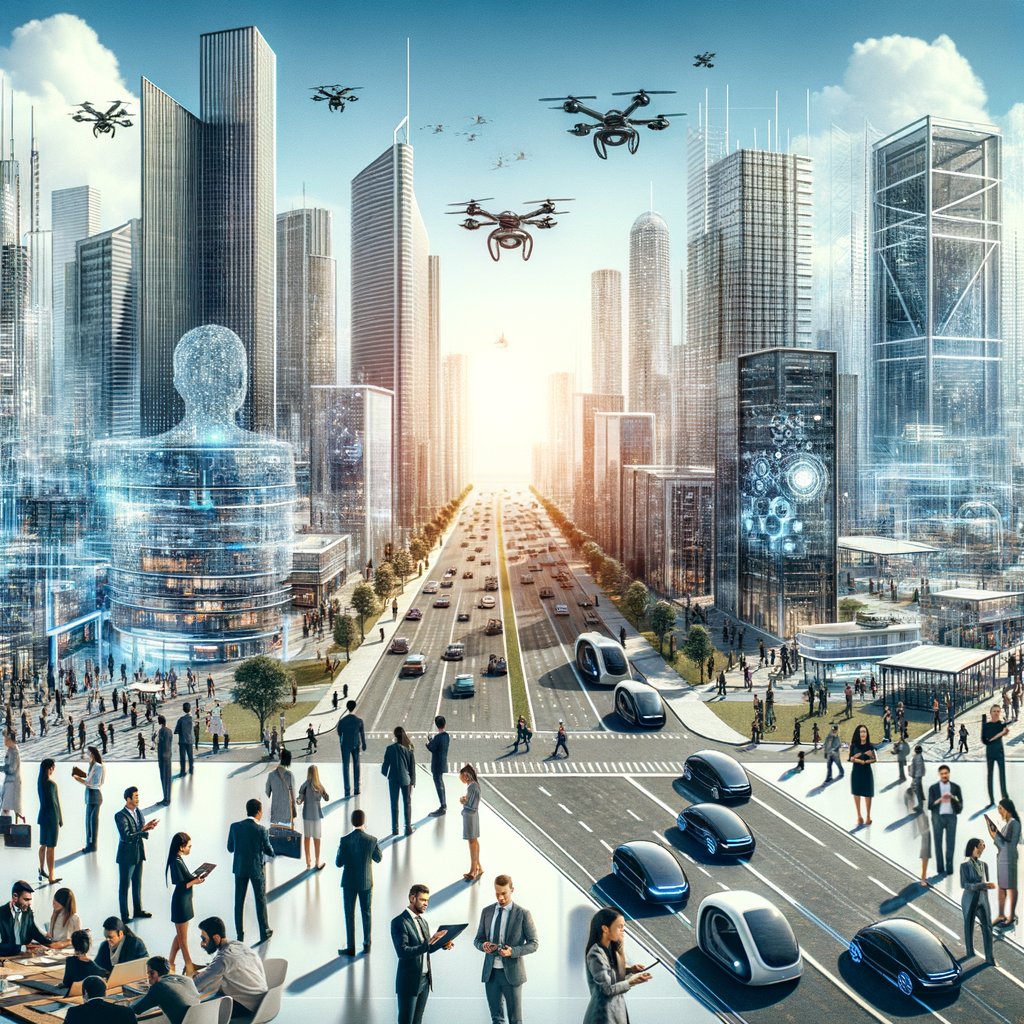Physical Address
304 North Cardinal St.
Dorchester Center, MA 02124
Physical Address
304 North Cardinal St.
Dorchester Center, MA 02124

As we sail into the uncharted waters of the future, one thing becomes increasingly clear – the world of work is undergoing a profound transformation. Technological advancements, globalisation, and changing demographics are reshaping the way we work, where we work and the skills we need to be successful in our careers.
The advent of technologies such as Artificial Intelligence (AI), robotics, and automation has significantly altered the labour market landscape. Machines are now capable of performing tasks once thought exclusive to humans, leading to a shift in job roles and responsibilities. This technological revolution is not only creating new career opportunities but also requiring workers to adapt and acquire new skills.
Globalisation too plays a pivotal role in shaping the future workforce. With businesses expanding their reach beyond borders, there’s an increasing demand for professionals who can navigate this complex global network. Furthermore, demographic changes such as ageing populations in some parts of the world and burgeoning youth populations in others are leading to shifts in labour supply and demand.
In light of these changes, how can individuals prepare for new careers? Here are some strategies:
In today’s rapidly evolving job market, lifelong learning is non-negotiable. Regular upskilling and reskilling will be crucial to stay relevant. This could mean pursuing further education or training in your field or branching out into entirely new areas.
With technology permeating every aspect of our lives, digital literacy – understanding how to use digital tools effectively – is becoming increasingly important. Whether it’s coding or using complex software systems or managing online communication, digital skills will be key to navigating the future workplace.
While machines may take over certain tasks, they cannot replicate human emotions. Skills such as empathy, communication and leadership – often referred to as ‘soft skills’ or ’emotional intelligence’ – will become increasingly valuable in a high-tech world.
In an interconnected global economy, the ability to work effectively across cultures is crucial. This requires not just knowledge of different cultures but also adaptability, open-mindedness and strong communication skills.
Education systems worldwide must evolve in response to these changing workforce demands. Schools and universities need to move beyond traditional subject-based learning towards a more holistic approach that fosters creativity, critical thinking, problem-solving and collaboration – skills that are essential for the jobs of the future.
Moreover, educational institutions should offer flexible learning pathways that allow individuals to reskill and upskill throughout their lives. This could include online courses, part-time study options or recognition of prior learning (RPL).
Employers too have a significant role to play in preparing their workforce for the future. This includes investing in employee training and development programs, fostering a culture of continuous learning and encouraging employees to proactively manage their careers.
In addition, employers can help bridge the skills gap by partnering with educational institutions – offering internships or work experience opportunities that provide practical on-the-job training.
We stand at an exciting juncture where we’re shaping the future with our actions today. Preparing for new careers requires foresight, adaptability and a commitment to lifelong learning. With these strategies in place, we can navigate the changing landscape of work and seize the opportunities that lie ahead.